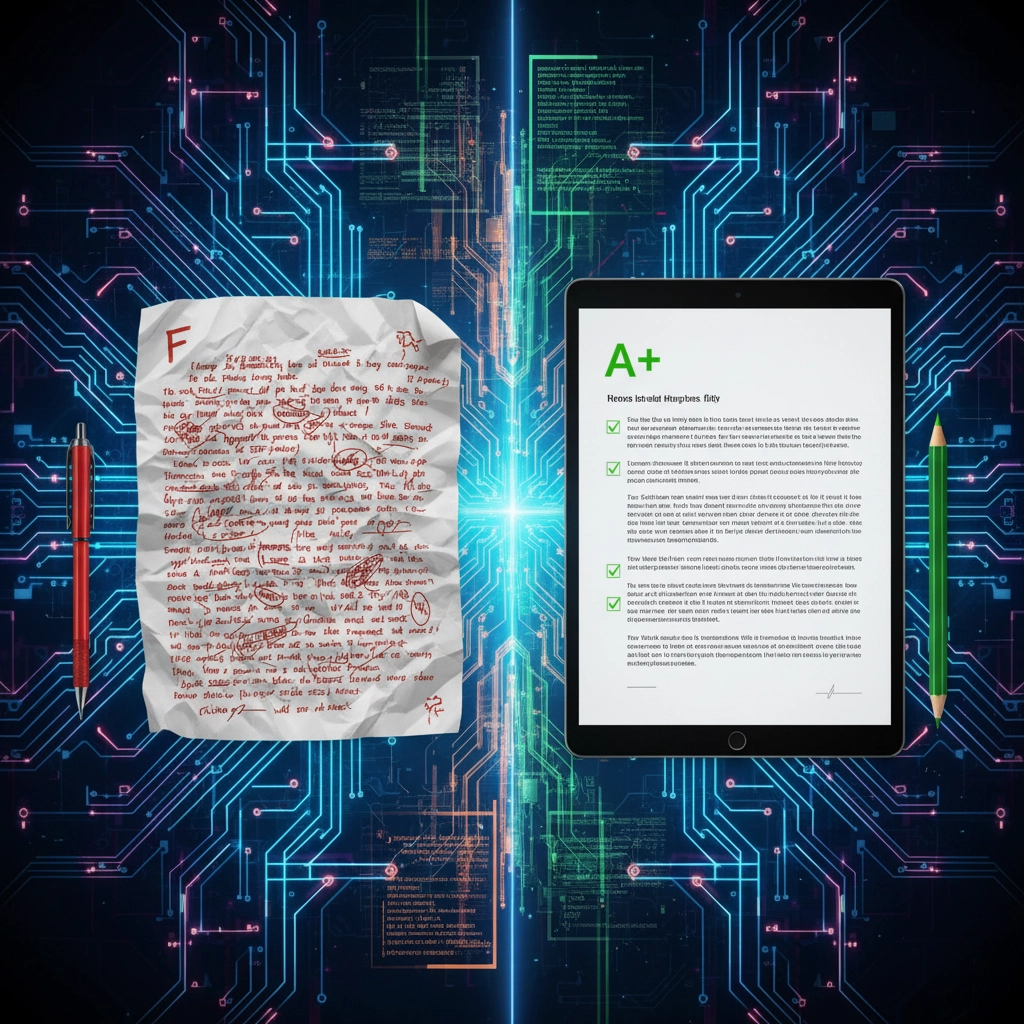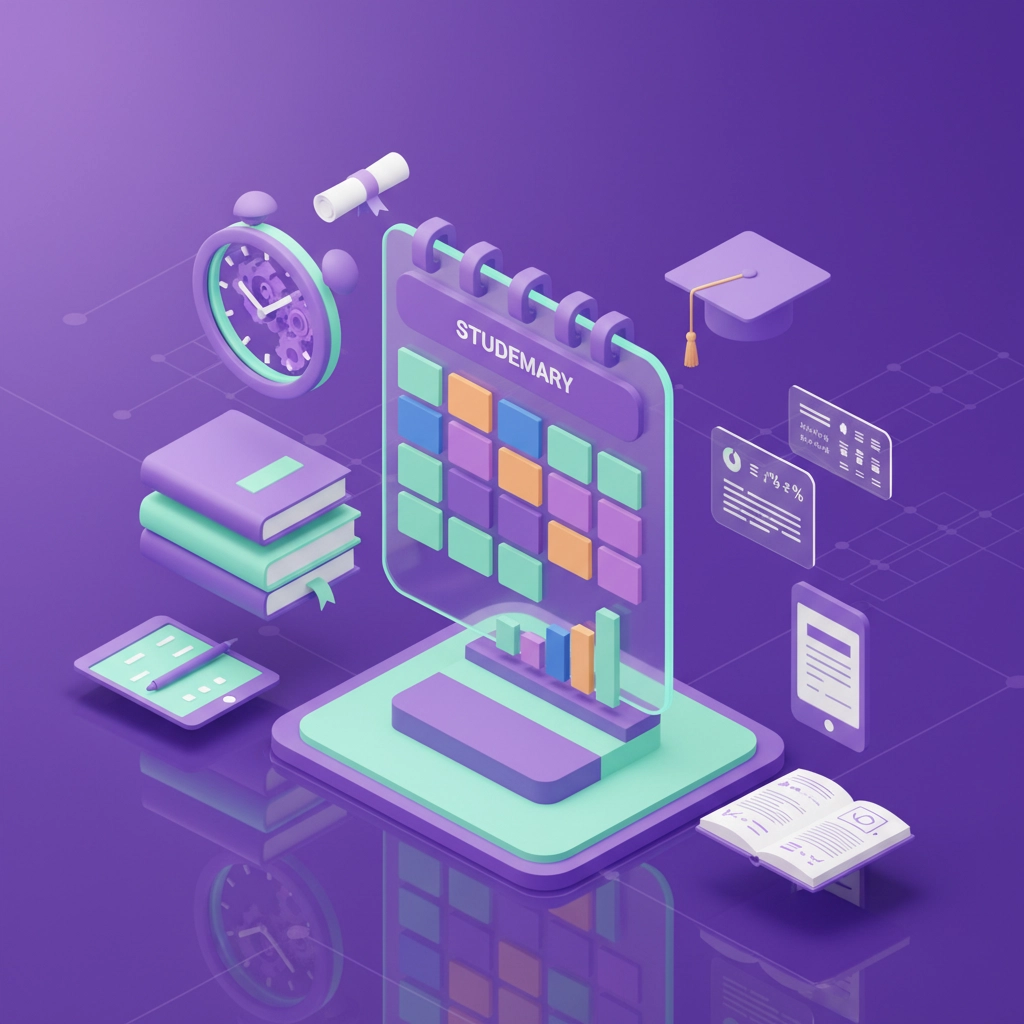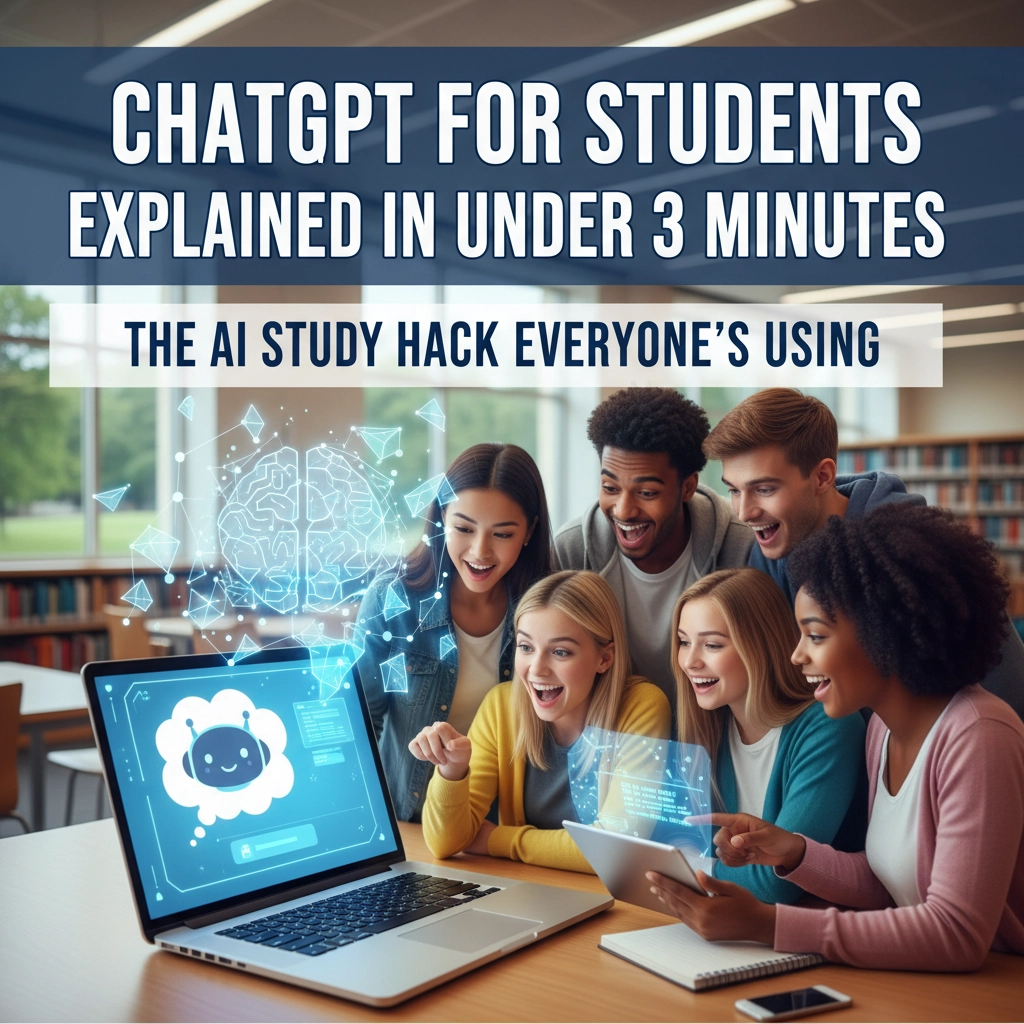Ever wondered why your classmates seem to understand complex topics faster than ever? They're probably using ChatGPT as their secret study weapon. This AI tool has quietly revolutionized how students learn, turning cramming sessions into efficient, personalized study experiences that actually work.
ChatGPT isn't just another search engine: it's like having a patient tutor available 24/7 who never gets tired of your questions. Students across the globe are using it to boost their grades, save study time, and actually enjoy learning again. Here's exactly how they're doing it.
Turn Any Subject Into Simple Explanations
The biggest game-changer? ChatGPT breaks down impossible-to-understand concepts into bite-sized pieces. Struggling with quantum physics? Ask it to explain like you're five years old. Can't grasp organic chemistry? Request an explanation using pizza analogies.

Students paste their confusing textbook chapters directly into ChatGPT and ask for simplified versions. The AI identifies the core concepts and presents them in clear, logical steps. It's like having someone translate academic jargon into plain English instantly.
But here's where it gets really cool: you can ask for explanations in different styles. Want to memorize the periodic table? Ask ChatGPT to create a rap song about elements. Need to remember historical dates? Request a funny story that connects all the events. One student told me she learned the entire Krebs cycle by asking ChatGPT to explain it as a dramatic soap opera plot.
The key is being specific with your requests. Instead of "explain photosynthesis," try "explain photosynthesis using a restaurant kitchen analogy, focusing on the inputs and outputs." You'll get way better results.
Create Custom Practice Materials In Seconds
Here's where ChatGPT really shines: generating personalized quiz questions from your study materials. After reading a chapter, students copy-paste the content and ask for practice questions. The AI creates everything from multiple choice to essay prompts.
The smart move? Ask for answers to be revealed only after you've attempted each question. This forces active recall, which research shows is way more effective than passive reading. Students are literally training their brains more efficiently.

You can also request specific types of questions based on your learning style:
• Visual learners: Ask for diagram-based questions and concept maps
• Kinesthetic learners: Request hands-on problem scenarios
• Auditory learners: Get questions designed for discussion or verbal explanation
• Reading/writing learners: Receive essay prompts and written analysis tasks
One engineering student I know uses ChatGPT to generate programming challenges that match exactly what she's learning in class. She progressed faster in one semester than most students do in two.
Get Instant Feedback On Your Work
Traditional studying means waiting days or weeks for professor feedback. ChatGPT gives you immediate responses on essays, problem sets, and creative projects. Students paste their work and ask for specific feedback on structure, clarity, or accuracy.
The AI spots logical gaps in arguments, suggests stronger evidence, and points out areas needing more development. It's like having a writing center tutor review your work instantly, any time of day.

Here's a real example: Sarah, a psychology major, was struggling with research paper conclusions. She'd paste her draft conclusion into ChatGPT and ask, "Does this conclusion effectively summarize my main points and suggest future research directions?" The AI would highlight weak areas and suggest specific improvements.
For math and science problems, students can check their work step-by-step. If you're stuck on calculus homework, show ChatGPT your approach and ask where you went wrong. It'll identify the exact step where your logic broke down and guide you toward the correct method.
The feedback isn't just about right or wrong answers: it's about understanding the thinking process behind solutions.
Build Study Schedules That Actually Work
Most students create study schedules that look good on paper but fall apart in real life. ChatGPT helps build realistic, personalized study plans based on your actual schedule and learning patterns.
Give it your exam dates, available study hours, and subjects requiring extra attention. The AI creates detailed weekly schedules that account for your energy levels, other commitments, and the difficulty of each subject.

But here's the brilliant part: you can ask ChatGPT to adjust your schedule based on how you're actually performing. Falling behind in organic chemistry? It'll redistribute time from subjects you're mastering to give chemistry more attention.
The AI also suggests optimal study techniques for each subject. Instead of using the same approach for everything, you'll get subject-specific strategies that align with how that material is best learned.
One student shared her experience: "I told ChatGPT I had three weeks to prepare for five finals, plus a part-time job. It created a schedule that actually fit my life instead of some impossible ideal. I ended up with my best semester GPA ever."
The Real Secret Most Students Miss
Here's what separates students getting amazing results from those just playing around with ChatGPT: they treat it like a conversation, not a search engine. The best results come from follow-up questions and iterative refinement.
Instead of asking one question and moving on, successful students engage in back-and-forth dialogue. They ask for clarification, request examples, and push deeper into topics. This conversational approach mirrors how human tutoring actually works.
The AI remembers your conversation history, so it builds understanding of your knowledge gaps and learning style. The more you interact, the better it gets at helping you specifically.
Smart students also combine ChatGPT with traditional study methods. They use it to understand concepts initially, then apply that knowledge through textbook problems, flashcards, or study groups. It's a tool that enhances learning, not replaces it.
Making It Work For You
Getting started is simple, but getting great results requires strategy. Be specific with your questions, provide context about your learning level, and don't be afraid to ask for explanations in multiple ways until something clicks.
Remember, ChatGPT works best when you're actively engaged in the learning process. Use it to understand, not to avoid thinking. The goal is building your knowledge, not finding shortcuts around learning.
What subject have you been struggling with that could benefit from a 24/7 AI tutor? Maybe it's time to give ChatGPT a try and see how it transforms your study sessions.







